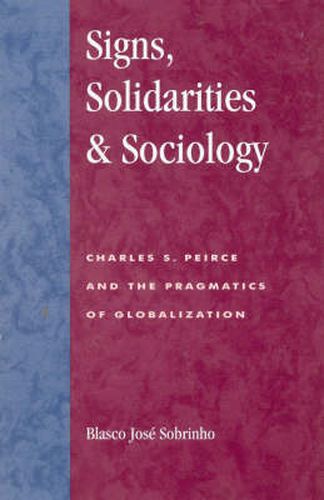Readings Newsletter
Become a Readings Member to make your shopping experience even easier.
Sign in or sign up for free!
You’re not far away from qualifying for FREE standard shipping within Australia
You’ve qualified for FREE standard shipping within Australia
The cart is loading…






Signs, Solidarities, & Sociology addresses the formation and fragmentation of identity in today’s postmodern world. Informed by the conceptual convergence in the theories of Durkheim, Peirce, Mead, and Lacan, this book surveys the range of twentieth-century sociology to deconstruct those favored nostrums of subjective meaning, personal power, and autonomous selfhood that comprise its semantics of agency. Revealed beneath this semantic screen is the triad of pragmatic codes-premodern affiliation, modern calibration, and postmodern globalization-that govern the social construction of the self. While the ill-comprehended confluence of these three signification codes in the present world situation can indeed fragment personal identity, their formal structural linkages, as shown in this book, may inform a truly postmodern, globally applicable science of culture.
$9.00 standard shipping within Australia
FREE standard shipping within Australia for orders over $100.00
Express & International shipping calculated at checkout
Signs, Solidarities, & Sociology addresses the formation and fragmentation of identity in today’s postmodern world. Informed by the conceptual convergence in the theories of Durkheim, Peirce, Mead, and Lacan, this book surveys the range of twentieth-century sociology to deconstruct those favored nostrums of subjective meaning, personal power, and autonomous selfhood that comprise its semantics of agency. Revealed beneath this semantic screen is the triad of pragmatic codes-premodern affiliation, modern calibration, and postmodern globalization-that govern the social construction of the self. While the ill-comprehended confluence of these three signification codes in the present world situation can indeed fragment personal identity, their formal structural linkages, as shown in this book, may inform a truly postmodern, globally applicable science of culture.